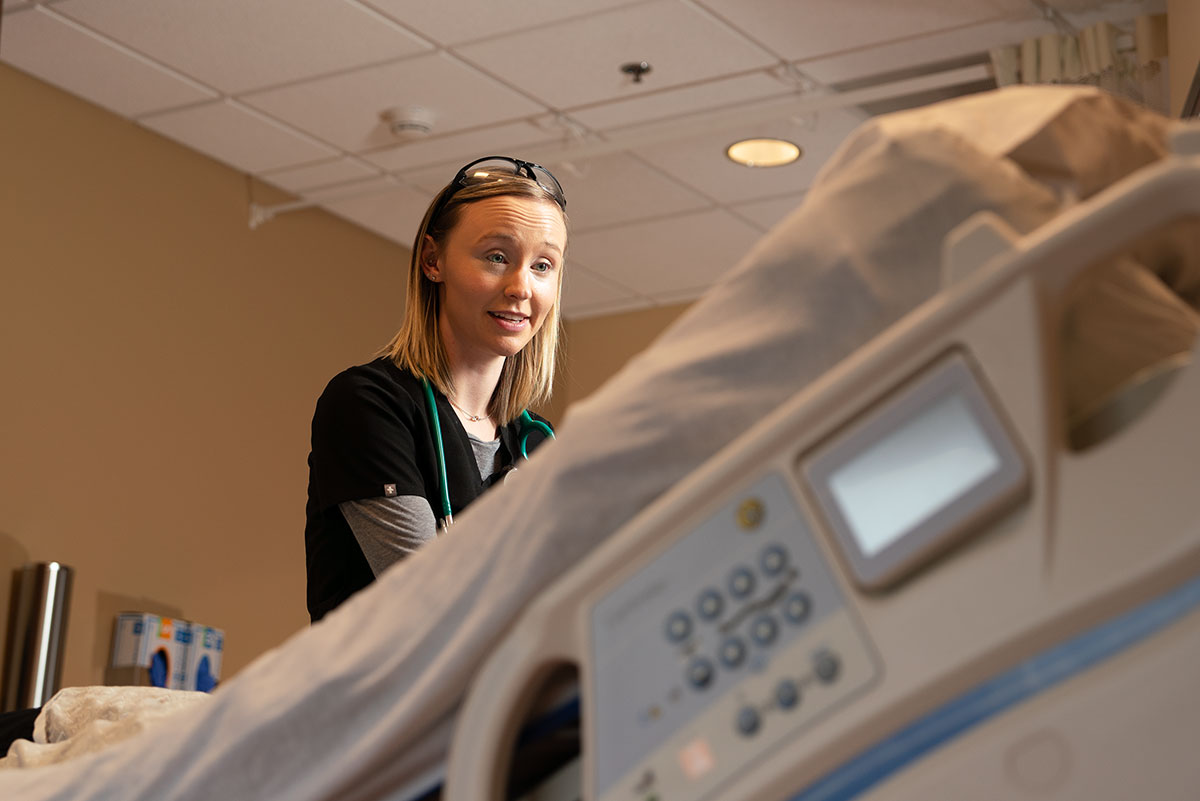A major investment in training Madras and Prineville nurses over the past three months means more patients in Jefferson and Crook counties can get the care they need closer to home rather than transferring to Bend, Redmond or beyond.
St. Charles spent nearly $500,000 to train nurses at the two hospitals, giving them the additional breadth of knowledge they need to provide the same level of care patients receive at Intermediate Care Units (IMCU) in Bend and Redmond. IMCUs serve as an essential link in the health system, taking care of people who don’t need the long-term critical care of an Intensive Care Unit, but who need a higher level of care than is typically available in a Medical Services unit.
To provide IMCU care, nurses need to have a robust understanding of things like administering heart medications and advanced life support techniques.
“The skill set has always been there,” says Dr. Maggie King, chief medical officer at St. Charles Prineville. “We just expanded it.”
As an example, a patient with Type 1 diabetes who is experiencing diabetic ketoacidosis – a serious condition caused by lack of insulin – requires an insulin drip and, often, an overnight stay. That’s a treatment typically provided in IMCUs.
Before the new training, patients with diabetic ketoacidosis in the Madras and Prineville areas had to be taken to Bend or Redmond. Now, those patients can stay at their local hospital to get the treatment they need, saving them a trip across Central Oregon and keeping them closer to friends, families and other resources.
And to be clear, it’s not just diabetics who benefit. Any patient who needs hospital care, but not ICU-level care, can stay closer to home.
“It’s been a wonderful thing for our community,” says Kassidy Apperson, a registered nurse at St. Charles Prineville who was in the first cohort of IMCU trainees last summer.
The training took place in Bend over the course of three months, beginning with classroom instruction and then hands-on learning in patient-care units, said Todd Shields, vice president and hospital administrator for Madras and Prineville. Another cohort is scheduled to start in February.
IMCU-level care started in Madras and Prineville in August. Since then, more than 40 patients who would’ve previously transferred have been treated in the two hospitals, Shields said. This not only saves the patients and their families the hassle of moving hospitals, he said, it also frees up ambulances and emergency workers, as each transfer removes them from service for about three hours. Finally, keeping these patients close to home reduces patient load for caregivers in Bend and Redmond, opening space for people local to those towns.
Nurses in Madras and Prineville have greatly benefited from the training, too. “(We’ve) really seen from the staff this level of pride,” King said. “There is a stronger sense of capability in keeping patients here and a push to care for them locally.”
For caregivers who are wholly dedicated to doing what’s best for their patients, that’s a great feeling, said Apperson.
“Being able to keep (them) in the community … has been so good for our patients,” she said. “It’s just awesome.”





